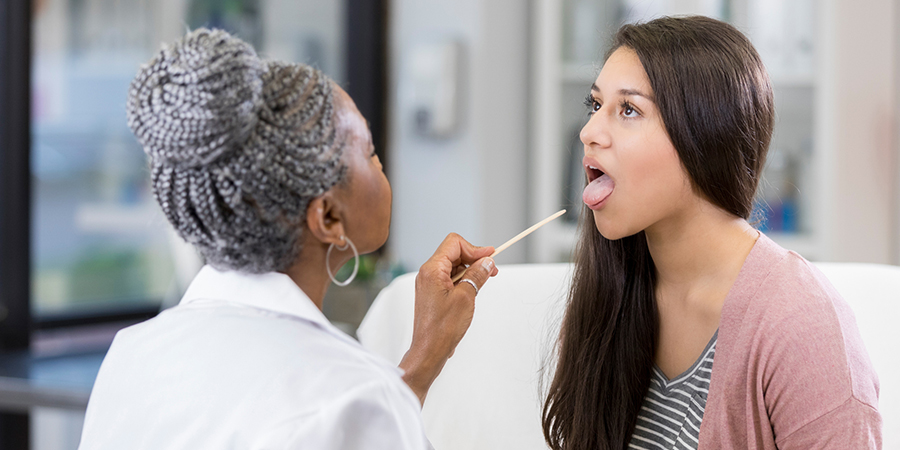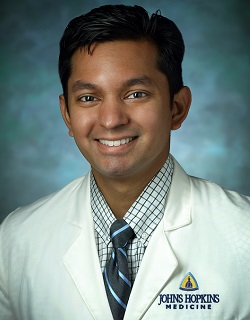Do you have trouble swallowing? Talk to your doctor about dysphagia
January 28, 2020
What is Dysphagia?
In and of itself, dysphagia is not a diagnosis but a symptom that refers to the sensation of food or liquid getting stuck in the throat or chest when swallowing. During the normal swallowing process, chewed or sipped material passes from the mouth through the esophagus and down to the stomach. Dysphagia occurs when there is resistance at any point due to functional issues or a physical problem, such as blockage or obstruction.
According to the National Foundation of Swallowing Disorders, dysphagia is believed to affect up to 22% of the U.S. population over age 50, with 10 million Americans being evaluated for swallowing difficulties on an annual basis. Patients can experience dysphagia in different ways, most commonly by having to exert extra effort to swallow, hearing and feeling a gurgle in the throat when swallowing or coughing while eating or drinking.
“Dysphagia can be categorized in one of two ways: by evaluating what part of the swallow is being affected or by the type of material that the patient is finding hard to swallow — food, liquid or pills,” explains Dr. Shumon Dhar, a laryngologist with the Johns Hopkins Voice Center at the Greater Baltimore Medical Center.
If food and liquids are aspirated into the lungs due to dysphagia, it can lead to pneumonia and other serious complications.
Who's At Risk?
Anyone can develop dysphagia, but Dr. Dhar says it’s more likely to affect the elderly and patients who have gastroesophageal (acid) reflux, commonly called GERD.
“Some genetic conditions may also predispose people to it,” he adds. “Dysphagia can affect patients who have a history of head cancer, neck cancer or hiatal hernia, and those with neurological or neuromuscular disorders.”
Lifestyle can be a contributing factor as well.
“Poor diet and obesity can lead to acid reflux, which is the number one cause of solid-food dysphagia,” Dr. Dhar mentions. “Whatever the cause, dysphagia isn’t normal and should always be investigated.”
How is Dysphagia Evaluated
The first things a doctor will do when evaluating a patient with dysphagia is obtain a complete medical history and perform an exam to try to determine what kind of material is getting stuck and where. The initial work-up may include a swallowing fluoroscopy or a modified barium swallow study performed by a radiologist, sometimes in conjunction with a speech language pathologist.
“Fluoroscopy focuses on the anatomy of the esophagus to diagnose motility problems, strictures and hiatal hernias,” Dr. Dhar explains. “The barium swallow study looks at the dynamic function of the entire swallowing mechanism.”
Dr. Dhar advises patients who are experiencing solid-food dysphagia to undergo an endoscopy procedure either transnasally while awake or under sedation to look for esophageal strictures, acid reflux damage, inflammation, infections and cancer.
Other diagnostic modalities may include high-resolution manometry, a procedure in which a catheter is inserted into the esophagus to measure pressure generated during the swallowing process, and two kinds of 24-hour pH tests that measure acid reflux levels. One test uses a hardwired probe to transnasally test for acid reflux.
The other, more advanced test is called a BRAVO. Here, a wireless pH capsule is attached to the esophagus during an esophagoscopy where it transmits reflux data for 48-72 hours. The capsule detaches on its own and passes normally through the digestive tract after the test is completed.
Dysphagia Treatment Options
Swallowing disorders are treated through patient-specific medical or surgical interventions.
Speech pathologists employ different techniques and maneuvers to help the patient swallow more efficiently. Gastrointestinal reflux can be addressed with diet and lifestyle modifications, weight loss, natural anti-reflux medications called alginates or the use of proton pump inhibitors and H2 blockers.
In some cases, esophageal dilation, Botox injections or surgery are used to correct the problem.



